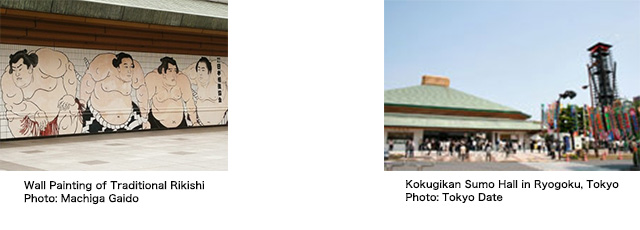News
February - Sumo: A National yet International Sport Updated in February 2019

In ancient times there were references on wrestling matches similar to sumo in Chinese, Indian and Greek chronicles. In Japan, Sumo developed as a religious rite offered to the gods, to ask for bountiful harvest. Thus, the sport is still deeply tied to Shinto, Japan’s indigenous beliefs and sumo demonstrations are often held within shrine grounds. During Edo period, the shogun Tokugawa started to host sumo matches by professional wrestlers called rikishi, literally meaning “the strong one.” These matches turned into the present-day “Ozumo” or the Grand Sumo Tournament. With the arrival of the Meiji-era modernization (1868) sumo suddenly suffered oppression as something obsolete but was saved by the Meiji emperor himself.
Rules of sumo are very simple. A rikishi can win by forcing the opponent out of the circular ring called dohyo, or by throwing the opponent inside the dohyo. The rikishi who touches the ground with “any part of the body other than the soles of their feet” would lose the match. There are similar types of competitive sports in Asia, particularly in Mongolia, Korea and regions around the former Soviet Union. In fact, amateur sumo is practiced widely by men and women, in and outside of Japan. The International Sumo Federation holds both men and women’s championships. In Japan, there are many different leagues and age of sumo athletes can range from kids to high school, university to corporate teams.
With growing sumo talent outside Japan, there are more trainees from different parts of the world, trying to climb to the top of the banzuke (the ranking chart). The last time a Japanese rikishi won the Ozumo Grand Champion title was back in January 2016, but he recently retired due to a critical injury. The salary of a top rikishi matches that of a global executive, but it is a tough career path. Less and less Japanese youths wish to turn professional. Under such circumstances, some insiders are flying overseas to scout new talents who can be the next star-rikishi. An accomplished Ozumo champion enjoys high status in Japanese society, but will be bound by codes of conduct. He is regarded as a successful athlete but also as an honorable figure to be looked up to.
You can view the Grand Sumo Tournament on NHK World:
https://www3.nhk.or.jp/nhkworld/en/tv/sumo/







